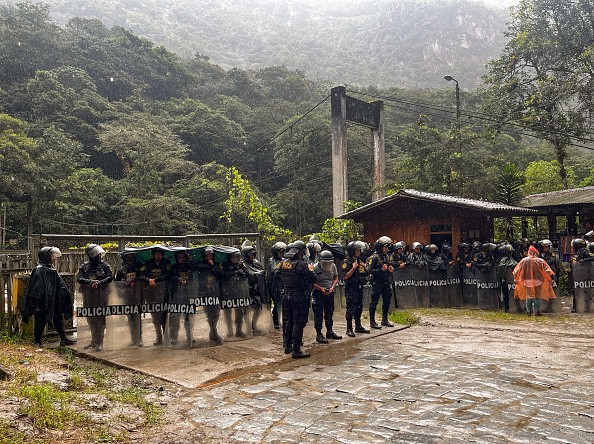Protesters in Peru have shut down access to Machu Picchu, leaving some tourists stranded amid local anger over a new ticketing system ceasing rail transport to one of South America's most well-known heritage sites.
The violent protests started when the former leader of Peru was ousted, which resulted in the deaths of several individuals.
Peru Protesters Block Access to Machu Picchu
Train services to the ancient ruins high up in the Andes have been suspended since Saturday due to safety concerns over demonstrators blocking the railway route. Two tour operators told Reuters travel links remained closed on Monday.
Tourism minister Luis Fernando Helguero said at a news conference on Saturday that it left 418 people stranded at the site.
On Saturday night, Helguero reported that 148 foreigners and 270 Peruvians had been rescued on trains and buses.
The protests started late last week, leaving hundreds of tourists from all over the world have been unable to access Machu Picchu.
The most recent conflict has dealt a severe blow to Peru's tourism sector, which was severely damaged last year by widespread civil unrest, especially in the southern Andean region, a key zone for the nation's copper industry.
On Monday, roundtable talks entered a second day to settle the conflict between demonstrators and authorities over the government's consolidation of ticket sales.
Leslie Urteaga, Peru's Minister of Culture, visited the area on Sunday. However, no announcement has been made on a resolution to the "indefinite strike" called by locals, tour operators, and travel unions.
Community leaders in Machu Picchu are concerned that the new electronic ticket sales platform could harm local businesses by "privatizing" sales and consolidating revenues into one company.
Authorities have been forced to discover new ways to manage visitor numbers as visitation recovers after the pandemic due to warnings about overcrowding and oversold tickets from agencies in charge of the site's care and preservation.
Peru claimed that the new ticketing system that will be available in January will improve the management of tourist numbers. Entries are limited to 4,500 daily starting this month, up from 3,800 last year.
In September, Peru temporarily closed three sections of Machu Picchu, a UNESCO World Heritage Site built in the 15th century as a religious sanctuary for the Incas due to site deterioration brought on by increased visitor numbers.

Former Peruvian President Faces Rebellion Charges
Peru's former President, Pedro Castillo, was set to appear in court for the first time on Thursday following his arrest on charges of revolution and conspiracy as his successor issued her first statements from the presidential palace.
Parliamentarians unanimously voted on Wednesday to remove Castillo from office after his failed attempt to govern by decree and dissolve Congress to avoid a third impeachment vote.
The Andean country has seen severe political unrest in recent years, with five presidents who failed to complete their elected terms in the last five years.








